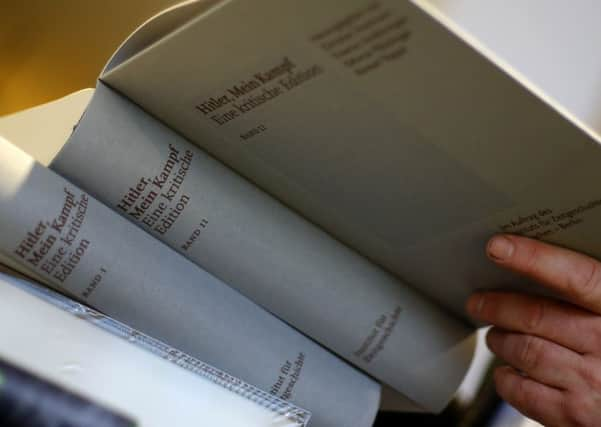Mein Kampf reprint becomes non-fiction best-seller in Germany


About 85,000 copies of the book have been sold since it was first published a year ago, according to the Munich-based Institute for Contemporary History, and the publisher said a sixth print run will go on sale later this month.
The publisher spent years adding comments to Hitler’s original text in an effort to highlight his propaganda and mistakes.
Advertisement
Hide AdAdvertisement
Hide AdThe institute said in late 2015 that it planned an initial print run of up to 4,000 copies and was not sure whether more would be printed. In April 2016, however, the book topped Der Spiegel’s weekly non-fiction best-seller list.
The bulky two-volume edition, titled Hitler, Mein Kampf: A Critical Edition, weighs in at 1,948 pages and costs 59 euros (£50). It was the first version to be published in Germany since the end of the Second World War.
Before the copyright on Mein Kampf, held by Bavaria’s state finance ministry, expired at the end of 2015, the ministry had used it prevent the publication of new editions in Germany.
Despite its incendiary and anti-Semitic content, the book was not banned in Germany and could be found online, in second-hand bookshops and in libraries.
The Institute for Contemporary History said fears that the new publication might help make Hitler’s ideology socially acceptable had proven unfounded.
“On the contrary, the discussion about Hitler’s world view and how to deal with his propaganda offered the opportunity to look at the disastrous roots and consequences at a time when authoritarian political ideas and right-wing slogans are again gaining followers,” said Andreas Wirsching, the institute’s director.
German authorities have made clear they will not tolerate new versions without annotations.
A far-right publisher announced last year that it planned to produce an edition “without annoying commentary”, prompting an investigation of suspected incitement. Prosecutors say there is no indication that the book went on sale.